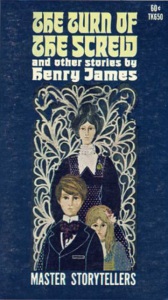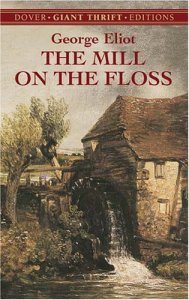Promised to deliver secrets, plot twists, haunting characters and a surprising ending that no one has yet guessed, The Insect Farm was the ideal book to get an interesting discussion started. Stuart Prebble came in to answer all of those stunned readers’ questions, reveal his inspiration for the novel and tell us how he came up with the unique topic of insects…
On plot… (Leanne Leveaux) (Van Demal)
I started with an idea about the basic plot, and then the novel just seemed to tell itself as I kept going back to it; it got more elaborate as I told the story. The Insect Farm itself is an idea I’ve had for a while, I love the idea of this sophisticated community of creatures which believes it is independent, but which is in fact manipulated by an unseen “god”, as maybe we are ourselves. It’s about 45 years since I read “Of Mice and Men” so if it was an influence, it was an unconscious one.
The whole business of misremembering is fascinating to me. As I get older I am constantly astonished by how people I have known for a long time remember things completely differently from the way I remember them.
On perspective… (Fran Roberts)
I did consider adding another perspective to the narrative. I thought about Roger, but then thought I would not be able to keep up the “surprise” if we were also in his head. I also thought about Harriet, but did not want her voice to vanish halfway through. I even thought about one of the policemen, but in the end decided that the challenge of keeping Jonathan as sympathetic as he needed to be was probably enough of a challenge.
I find the whole idea of societies which are sophisticated in themselves, but which believe themselves to be independent, a fascinating metaphor for our lives
On Brendan… (Emma Herdman)
I did hope that the character of Brendan would interest people. We are supposed to dislike him because he won’t take “no” for an answer, and keeps on sneaking up on Harriet. On the other hand, all he is guilty of in the end is falling hopelessly in love with her – and we can hardly blame him for that. I did at one time consider whether to have Brendan arrested, tried, convicted and jailed for Harriet’s murder, but then I thought we would dislike Jonathan even more than some people do, so that idea went away. Anyway, he seems to have lived happily ever after, so maybe he can re-emerge in another book sometime and we can get to know him better.
On Jonathan… (Janet Brown) (Katie Bond)
The challenge of keeping Jonathan as a sympathetic character when he has murdered his wife in a drunken rage was always going to be a tricky one! I think I hoped that by making his main motive for staying out of jail that he wanted to take care of his brother might tilt the balance in his favour. I suppose he does get his just punishment in the end. I also hoped that by letting the reader so far into his head, we might stay with him. Anyway the important thing is always that there is someone to like and Roger is loyal, simple, and very very effective, so maybe he is the real hero.
I think I probably got part of the inspiration for Jonathan’s voice from Enduring Love – where you start by being sympathetic to the narrator, and then gradually realize that he is a bit strange. It was a tricky balance. I tried hard to bring the reader into his mind, and I hope I managed it to a certain extent.
On Roger… (Charlotte Dibley) (Fran Roberts)
(Charlotte Dibley) (Fran Roberts)
I had to find a balance for Roger where he is someone who needs constant care, but is also able to function in surprising ways. He is “on the spectrum” – at a point somewhere mid-way between two people I know. I think I would have found it too challenging to be inside Roger’s head for the whole time – but I did grow to love his simplicity, his loyalty, and his cunning.
I always wanted Roger to be an enigma, for us always to suspect that there might be more to him than met the eye. I tried to drop clues as we went through the narrative but it was always a balance between making him too “knowing” or too naive. I feel gratified that the “surprise” seems to have worked for most readers so far.
On the idea of insects… (Frances Teehan) (Sara Donaldson)
I didn’t ever create an Insect farm – but have been fascinated for a long time by the analogy of an insect farm and the world we all live in. The idea of an unseen creator, outside of our own ability to detect him/her, has long been of interest. I always envisage a conversation going on in an anthill somewhere in the rain-forest – where the creatures are saying “isn’t it great to be masters of our universe? Isn’t it great that we understand everything?” Just like us.
I was always aware that the theme of insects might be a bit repellent for some readers, so I knew I was taking a risk by adopting it as a microcosm of the wider world. It’s just that it offered so many opportunities – for example when Roger confesses to a murder when he is at the day-school, and it turns out that he is referring to the cockroaches. It was also always going to be a handy way of disposing of a body and I enjoyed the idea of the detectives wandering around, and coming so close to finding Harriet. Then there is the opportunity it provided for the ending, and taking us full circle back to the beginning.
I didn’t research insects first – though I’d have to do some work to find a species which ate bones as well as flesh! As I’ve mentioned, I find the whole idea of societies which are sophisticated in themselves, but which believe themselves to be independent, a fascinating metaphor for our lives. When Roger does his version of “the sermon on the mount” at David Frost’s party, I hoped the reader would go with me on the extended creator metaphor. I am delighted that so many people seem to have done so.
On the ending… (Caroline Ambrose) (Zarina de Ruiter)
When I got to the end of the first draft, I went back and seeded some further clues such as when the two detectives visit Jonathan’s flat to ask about Harriet, and Roger has received an air-mail package. Yes, if Roger hadn’t returned unexpectedly, Harriet would probably still be alive – but would Jonathan have been able to live with the “jazz versus blues” sharing? I doubt it!
It’s fun to think about what happens after Jonathan’s final words – I have my own thoughts but it’s more fun for everyone to work out what they think for themselves. Roger obviously has capabilities far beyond the obvious. I always knew how I wanted it to end but since then my very clever agent has pointed out that maybe it’s not a good idea to massacre all of your main characters at the end of a book! Too late I fear.
The Insect Farm by Stuart Prebble was published on 15th March by Alma Books.








